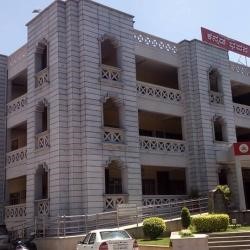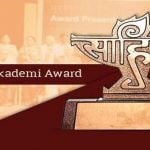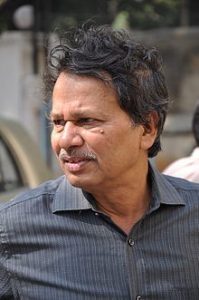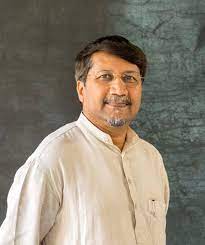
'Award wapsi' clause proposal shocks literary, cultural fraternity in Karnataka

The literary and cultural community in Karnataka is upset, and even bristling with anger, over a recommendation made by a parliamentary panel. The proposal is that cultural institutions and academies should take a prior undertaking from awardees to ensure that the ‘return of the award is not used as an instrument of political protest’.
Writers, filmmakers, academicians, theatre and folk personalities of Karnataka termed the recommendations of the panel as anti-democratic, an assault on freedom of expression and an attempt to curtail the freedom to protest in any form granted by the Constitution.
Awards returned in 2015
This recommendation has largely been made because in 2015, after the heinous murder of eminent Kannada writer, scholar and rationalist MM Kalburgi, writers returned their awards to Kendra Sahitya Akademy as a form of protest. This largely came to be known as ‘award wapsi’.
This new development was part of the recommendations tabled in Parliament on Monday (July 24) by the standing committee on transport, culture and tourism in its report on the ‘Functioning of National Akademies and other Cultural Institutions’.
 Over 39 writers including Hindi novelist, Uday Prakash, Nayantara Sehgal and Ashok Vajapayee have returned their awards to Kendra Sahitya Akademy in 2015. Six Kannada writers returned the award to Karnataka Sahitya Academy protesting against the slow progress in the investigation of the murder of M M Kalburgi. Noted Kannada writer, Devanura Mahadeva also returned Kendra Sahitya Akademy and Padmashree awards conferred on him.
Over 39 writers including Hindi novelist, Uday Prakash, Nayantara Sehgal and Ashok Vajapayee have returned their awards to Kendra Sahitya Akademy in 2015. Six Kannada writers returned the award to Karnataka Sahitya Academy protesting against the slow progress in the investigation of the murder of M M Kalburgi. Noted Kannada writer, Devanura Mahadeva also returned Kendra Sahitya Akademy and Padmashree awards conferred on him.
Also read: Why Kannada writer SL Bhyrappa’s Padma Bhushan turned controversial
Prestige and reputation of awards at stake
The panel in its recommendations observed that “such inappropriate incidents involving the return of the awards undermine the achievements of the other awardees and also impact the overall prestige and reputation of the awards. The panel termed the return of the awards as “disgraceful to the country”.
The panel also recommended that academies may even consider taking prior concurrence of shortlisted candidates before the awards are finalised. The panel also suggested that “in case the awards are returned as a mark of political protest, awardees shall not be considered for such an award in the future”.

Curtailment of right to protest
Noted writer, cultural critic Baraguru Ramachandrappa, who headed the cultural policy committee of Karnataka described the panel’s recommendation as anti-democratic and an onslaught on freedom to protest.
“Awards are primarily being conferred on the basis of achievement of personality in the specified field of art. Selection of the person is based on recommendation of a jury or selection committee. It is the responsibility of both the government and cultural institution not to humiliate personalities they chose for the award by imposing conditions. Karnataka has a history of respecting the creative freedom of cultural personalities and protect them from any autocratic and undemocratic political dispensation,” he said.
Affirming the stand of Baraguru Ramachandrappa, former chairman Kannada Development Authority (KDA) S G Siddaramaiah said that the “recommendations of the panel are aimed at curbing freedom of expression of creative minds in the country. After all, protest of any kind against the system is the strength of the democracy”. He added that under no circumstances, the creative world will compromise with that. If the present dispensation at the Centre has any faith in democratic principles, recommendations of this kind should be rejected mercilessly, he pointed out.
Unprecedented

Noted artist and former chairman of Karnataka Lalit Kala Academy M S Murthy said that “imposing conditions, while selecting the personalities for the awards in any field of art is a general practice”.
“Artists with some moral standing will not apply for the awards. It is the choice of the jury or selection committee and it is left to the discretion of individuals as to whether to accept or reject the conditions imposed. But, imposing conditions as a norm, following the recommendations of a panel is something unprecedented,” he admitted.
Some writers, filmmakers and theatre personalities however have felt the recommendation is the ‘need of the hour’ due to political polarisation in the society.
Also read: Karnataka polls: Progressive thinkers, writers launch campaign to vote BJP out
Even Tagore and Karanth rejected the award
Citing instances of Rabindranath Tagore rejecting the Nobel Prize to protest against British rule and Shivarama Karanth cautioned about returning the award to protest against imposition of Emergency in 1975, national award recipient filmmaker B Suresh said that every creative personality should reserve his right to protest in any manner. And that the recommendations of the panel is aimed at making creative minds subservient to autocratic dispensation and snatching their right to protest.
Describing the development as “unfortunate”, filmmaker and former chairman of KDA T S Nagabharana said “laying conditions of the kind does not augur well in the holistic national interest”. However, he said that imposing conditions has become “inevitable” because of the recent polarisation of culture based on ideological and political reasons.
An absurd act
Underlining the urgent need to oppose the recommendations, theatre personality and former chairman of Karnataka Nataka Academy J Lokesh meanwhile4 said that placing conditions for accepting the award is an ‘absurd act’. It is the duty and responsibility of cultural institutions to confer awards to the deserving.
“Taking an undertaking from creative minds is akin to disrespecting the Constitution,” he said.
Writer and former chairman Karnataka Sahitya Academy, Aravinda Malagatti is of the opinion that any cultural institution or political dispensation should restrain from exhibiting an authoritarian attitude in cultural affairs. Those institutions should strive hard to protect the dignity of the cultural spectrum of the society they represent.
Blaming the failure of the government in acting against perpetrators of crime in Kalburgi’s murder incident, he further said that “had they acted swiftly, the need of writers to return the awards would not have risen”.
Similar was the reaction of Pichalli Srinivas, folklorist, singer and former chairman, Karnataka Janapada Academy. While writer and publisher N Ravikumar described the move as “political intervention” in the cultural life of a country.


